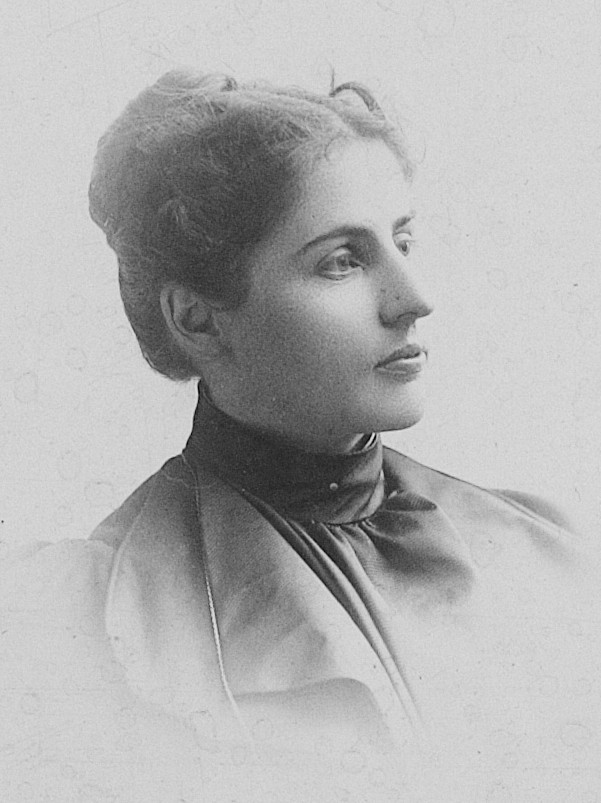Summit celebrates women of Cornell Law
By James Dean
Nearly 127 years after Mary Kennedy Brown became Cornell Law School’s first female graduate, the alumni network named in her honor will host its inaugural Women's Summit, March 13 in New York City.
The summit will celebrate the school’s trailblazing women, foster connections among diverse graduates and present panel discussions about entrepreneurship, leadership, networking and advocacy.
“There’s such a long history of pathmaking women graduates at the Law School, and this gives us a chance to celebrate them as a group,” said Jacqueline Duval, J.D. ’92, of counsel at Herrick Feinstein LLP and incoming president of the Mary Kennedy Brown Society. “The program highlights areas where women and people of color have had a harder time getting traction, and we feel that’s a great focus for our first summit.”
The event is open to anyone; registration for roughly 100 attendees is available through March 5. More information and a registration form are available here.
Duval and Eduardo M. Peñalver ’94, the Allan R. Tessler Dean of Cornell Law School, will offer welcoming remarks. Celia Bigoness, associate clinical professor of law and founder of the Entrepreneurship Law Clinic, will moderate the first panel, “Cornell Women in Entrepreneurship: A Lawyer’s Perspective,” showcasing Cornell programs promoting a spirit of entrepreneurship.
Panelists include Kirsten Barker ’92, director of the Bank of America Institute for Women’s Entrepreneurship at Cornell; law students Jennifer Chu and Cora Liang, who have been involved with the Entrepreneurship Law Clinic and Big Red Ventures, a student-run investment fund, and started a business, respectively; and Romy Fain, M.S. ’15, Ph.D. ’17, whose Ithaca-based clean energy startup, Heat Inverse, is one of more than 20 Entrepreneurship Law Clinic clients.
Those clients are led roughly equally by men and women, Bigoness said, but her two-year-old clinic draws many more applications from male law students.
“This is a space where we are interested in promoting innovation and invention and the commercialization of research coming out of Cornell,” Bigoness said. “But we’re not going to pretend that gender is not an issue – it still is. We’re making great progress, but let’s talk about the elephant in the room.”
After a second panel on the business of being a woman lawyer, Adeola Adejobi, J.D. ’09, will deliver a keynote talk on “Raising the Bar: Promoting Diversity in Law, Entrepreneurship and Business.”
“It's something that people are being more deliberate about and paying more attention to,” said Adejobi, founder of the Avant-Garde Network, a social impact organization for young executives and entrepreneurs of color. “Sometimes our industry is a little bit behind, but this is right on point with the direction that society is going.”
Adejobi will join a third panel, “Diversity and Disruption in Venture Capital,” moderated by Duval and including Meghan Cross Breeden ’08, a partner at Amplifyher Ventures, and Jennifer Justice, J.D. ’96, co-founder of The Justice Department, a women-led firm focusing on legal counsel and business strategy development for female professionals.
Women entrepreneurs receive only about 2% of U.S. venture capital investment, Adejobi said, and women of color a fraction of that. The panel will address solutions for growing that representation, she said. “Law schools and lawyers can play a big part in closing the information gap,” Adejobi said.
While tackling modern challenges, the inaugural Women’s Summit – in a year that will mark the centennial of the 19th Amendment’s ratification, guaranteeing women’s right to vote – will also reflect on progress made over decades.
More than half of the Law School’s current students are women. Last year, the Cornell Law Review elected its first all-female senior editorial board, believed to be a first among the nation’s top 14 law schools. That milestone came a century after Mary Donlon Alger, a 1920 Law School graduate, became the first woman elected editor-in-chief of a U.S. law review.
“Because there’s such a history of pioneering women, it’s less of a big deal for women to feel like they can see themselves in leadership roles here,” said Rosalind Major, a second-year law student and alumni relations chair of the Women’s Law Coalition, who served on the summit’s planning committee.
Duval hopes the summit will become an annual event and help energize Law School alumni.
“Just celebrating the Law School and the legacy of women there,” she said, “is going to be a great takeaway.”
Media Contact
Get Cornell news delivered right to your inbox.
Subscribe

